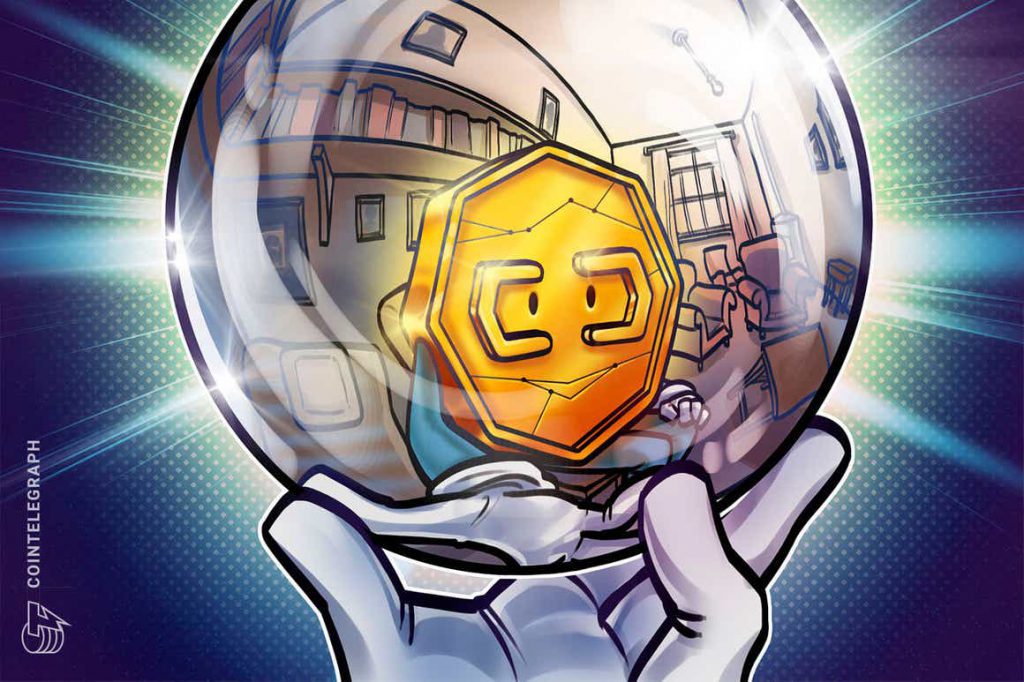2021 was an exciting year for crypto, with several well-known — some unexpected — brands entering the crypto sector. Here’s looking at you, Charmin, and your toilet paper nonfungible tokens (NFTs). The year saw its fair share of moments that had crypto enthusiasts on the edge of their seats.
While many people continued to talk generally about the revolutionary power of cryptocurrencies and blockchain, it seems as though 2021 was the year when the ideas underlying these technologies truly took hold of the consciousness of the mainstream. From NFTs to Web3, there has never been more interest expressed from traditional players in relation to this fast-expanding ecosystem.
Here are some of the biggest moves made by major consumer brands to engage with and adopt various crypto-centric technologies — be it simply buying Bitcoin (BTC) or releasing an NFT collection.
Tesla makes waves by buying Bitcoin
No list of this nature can be complete without mentioning the news that probably got most of today’s younger — and likely older, too — crypto investors interested in the space. In February, Elon Musk’s Tesla made a bombshell announcement, revealing it had invested a whopping $1.5 billion dollars in Bitcoin. This was nearly 8% of Tesla’s $19 billion cash and cash equivalent reserves, the amount it held according to a 2020 Securities and Exchange Commission filing.
As soon as Musk made his foray into the world of cryptocurrencies, the value of Bitcoin shot up meteorically — rising from $38,000 to over $57,000 within roughly two weeks. Not only that, but over the course of the year, Musk revealed to the world that he had also made sizable acquisitions of other assets like Ether (ETH) and Dogecoin (DOGE), although he did not disclose the exact amounts.
Dallas Mavericks start accepting Dogecoin
Another decision that had crypto investors all over the world quite intrigued was Mark Cuban’s move in March to allow fans of his NBA franchise, the Dallas Mavericks, to buy tickets and other licensed merchandise using Dogecoin, the popular meme cryptocurrency. And while the move came as a surprise to some, for those following the crypto market closely, the decision was completely in line with Cuban’s all-encompassing vision for the fledgling altcoin sector.
Over the course of 2021, Cuban repeatedly referred to himself as an “Ethereum maxi,” claiming that the blockchain’s fast-expanding ecosystem could easily be one of the biggest tech revolutions of the 21st century. He also publicly hailed Dogecoin as a superior medium of exchange than Bitcoin.
Nike enters the Metaverse
In December, sportswear manufacturer Nike made its crypto debut by revealing its acquisition of virtual sneakers and collectibles brand RTFKT. As a result of the partnership, Nike officially became the largest producer of athletic-based goods within the United States and one of the first big-name apparel brands to enter the burgeoning Metaverse ecosystem.
Nike CEO John Donahoe said that the company will be able to “serve athletes and creators at the intersection of sport, creativity, gaming and culture” and “extend Nike’s digital footprint and capabilities.”
Adidas refuses to be left behind
Around the same time as Nike’s aforementioned move, Adidas announced that it was entering the Metaverse in collaboration with a number of prominent NFT projects, including Bored Ape Yacht Club, Gmoney and Punks Comic.
The first venture featured pieces of the Bored Ape NFT family redrawn to feature Adidas’ iconic tracksuit. Meanwhile, the Gmoney tokens were designed to leverage the influence of the prominent NFT proponent, who was recently featured on Fortune NFTy 50.
Adidas’ Punks Comic NFTs sought to bring together the world of nonfungible tokens and physical comic books to create a novel offering of so-called crypto comics.
Clinique launches NFT-based customer loyalty program
Estée Lauder-owned cosmetics brand Clinique released select NFTs last year to help increase the efficacy of its existing customer loyalty system as well as add more marketing weight to its existing line of products.
The prominent beauty brand allowed clients signed up for its rewards program to obtain these collectibles by simply sharing their “stories of optimism” via Instagram, TikTok and Twitter following a significant purchase.
Coca-Cola’s novel NFT program
Last year, one of the world’s most recognizable brand names, Coca-Cola, released a special NFT program to raise money for Special Olympics International.
As part of the charitable effort, digital collectible marketplace OpenSea hosted the auction of Coca-Cola’s NFTs over a three-day period from July 30 to Aug. 1. The NFT collections were devised in conjunction with renowned digital artist and designer Tafi.
Luxury auction house Sotheby’s accepts cryptocurrencies
Sotheby’s, one of the world’s most famous auction houses, announced on May 4 that it would accept Bitcoin and Ether bids (in addition to traditional fiat ones) for Banksy’s famous artwork “Love Is In The Air” as part of its “Contemporary Art Sale” exhibition, making it the first major auction house to accept digital currencies for physical pieces of art.
Earlier, in April, Sotheby’s released an NFT collection titled “The Fungible” created by digital artist Pak. Each of the collectibles was sold via NFT platform Nifty Gateway.
Asics cashes in on the global NFT mania
July saw leading sports apparel brand Asics launch its first NFT collection, “Sunrise Red,” to the masses. A total of 189 collectibles spanning a total of nine different Asics digital footwear products — including some of the company’s most popular styles, such as Gel-Lyte III, Gel-Quantum 360 and Metaracer — were made available to interested customers.
The company revealed that proceeds from the auction would be poured right back into the Metaverse via its Digital Goods Artist-in-Residence Program, which has helped facilitate various collaborations between the company and a number of established and emerging digital artists to design its next wave of NFTs.


